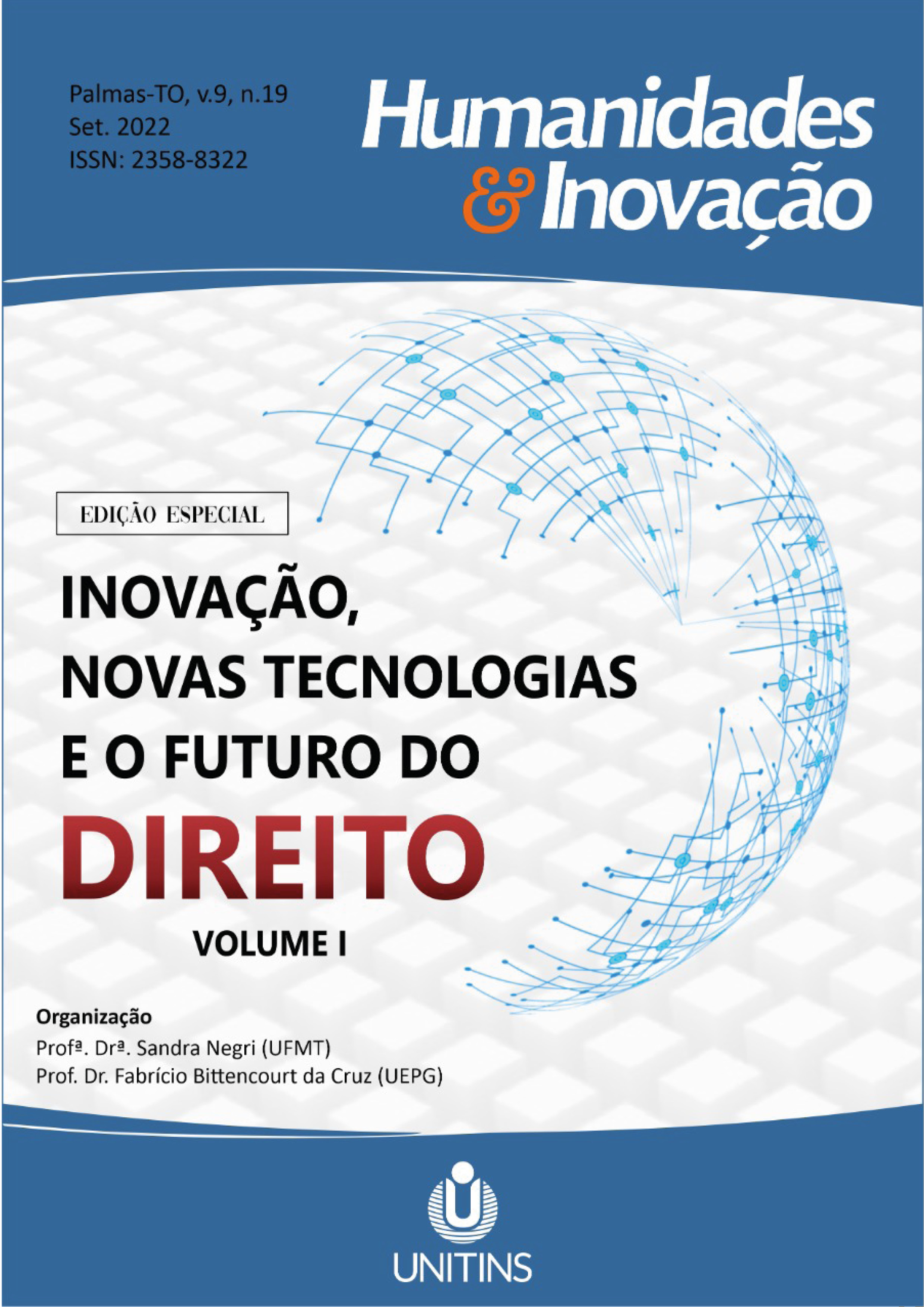TECNOLOGIA NO DIREITO BRASILEIRO: INTELIGÊNCIA ARTIFICIAL NA GESTÃO DO CONTENCIOSO – ENTREVISTA COM EXPERT
Abstract
Entrevista com Vicente Barbur Neto: graduado em Ciência da Computação, participou de programas internacionais com a Universidade de Stanford. Também possui graduação em Gestão de Negócios pelo Insper - Instituto de Ensino e Pesquisa - e Gestão de Marketing pela ESPM - Escola Superior de Propaganda e Marketing.
References
CARDINAL, Gustavo Sanches; DE BAPTISTA, Isabelle. Smart City: planos diretores e o serviço de justiça sob a ótica de experts. Humanidades & Inovação, v. 8, n. 48, p. 301-311, 2021.
CROTTY, Michael J. The foundations of social research: Meaning and perspective in the research process. The foundations of social research, p. 1-256, 1998.
HACKING, Ian et al. The social construction of what? Harvard University Press, 1999.
HOBSBAWM, Eric J. A era das revoluções: Europa 1789-1948. Rio de Janeiro: Paz e Temi, 1977.
KUPER, Adam. Reinvenção Da Sociedade Primitiva. Transformações de Um Mito. Editora Universitária UFPE, 2008.
LEMOS, Ronaldo. Direito, tecnologia e cultura. FGV Editora, 2005.
ORGANIZAÇÃO DAS NAÇÕES UNIDAS (ONU). Transformando Nosso Mundo: A Agenda 2030 para o Desenvolvimento Sustentável. Nova Iorque: 2015. Disponível em:
PEIXOTO, Ravi. Superação do precedente e segurança jurídica. Salvador: Juspodivm, 2015.
ROLFINI, Fabiana. Além da Faria Lima: Docato usa IA para simplificar burocracia jurídica de grandes empresas. Startups, 20 ago. 2021. Disponível em:
STARTUP de Ponta Grossa é destaque em competição nacional. DCmais, 14 nov. 2020. Disponível em:
Copyright Notice
The submission of originals to this periodic implies in transference, by the authors, of the printed and digital copyrights/publishing rights. The copyrights for the published papers belong to the author, and the periodical owns the rights on its first publication. The authors will only be able to use the same results in other publications by a clear indication of this periodical as the one of its original publication. Due to our open access policy, it is allowed the free use of papers in the educational, scientific and non-commercial application, since the source is quoted (please, check the Creative Commons License on the footer area of this page).











